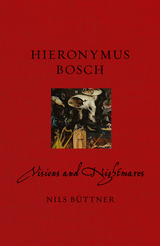4 start with A start with A
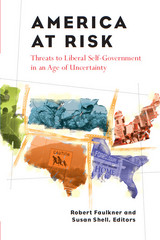
America at Risk gathers original essays by a distinguished and bipartisan group of writers and intellectuals to address a question that matters to Americans of every political persuasion: what are some of the greatest dangers facing America today? The answers, which range from dwindling political participation to rising poverty, and religion to empire, add up to a valuable and timely portrait of a particular moment in the history of American ideas.
While the opinions are many, there is a central theme in the book: the corrosion of the liberal constitutional order that has long guided the country at home and abroad. The authors write about the demonstrably important dangers the United States faces while also breaking the usual academic boundaries: there are chapters on the family, religious polarization, immigration, and the economy, as well as on governmental and partisan issues.
America at Risk is required reading for all Americans alarmed about the future of their country.
Contributors
- Traci Burch
- James W. Ceaser
- Robert Faulkner
- Niall Ferguson
- William A. Galston
- Hugh Heclo
- Pierre Manent
- Harvey C. Mansfield
- Peter Rodriguez
- Kay Lehman Schlozman
- Susan Shell
- Peter Skerry
- James Q. Wilson
- Alan Wolfe
Robert Faulkner is Professor of Political Science at Boston College. Susan Shell is Professor of Political Science at Boston College.
"America at Risk goes well beyond the usual diagnoses of issues debated in public life like immigration, war, and debt, to consider the Republic’s founding principles, and the ways in which they have been displaced by newer thoughts and habits in contemporary America. A critical book for understanding our present condition."
—Francis Fukuyama, Bernard L. Schwartz Professor of International Political Economy, Johns Hopkins School of Advanced International Studies
"In this penetrating book, the nation’s finest social and political thinkers from across the spectrum take a careful and no-holds-barred look at the dangers facing the American political system. The conclusions are more unsettling than reassuring---but that is because they are honest and real."
—Norm Ornstein, Resident Scholar, American Enterprise Institute
"In the midst of overwrought pundits, irate soccer moms, and outraged bloggers, it is difficult to distinguish genuine dangers from false alarms and special pleading. This book enables us to do so, in a way that helps us to actually think about, not just feel anxious about, threats to those features of American society that are worth cherishing. The authors range in ideology and expertise, but they are uniformly judicious, incisive, and informative. This is a fascinating book about issues that the political system usually ignores or exaggerates."
—Jennifer L. Hochschild, Henry LaBarre Jayne Professor of Government and Professor of African and African American Studies, Harvard University
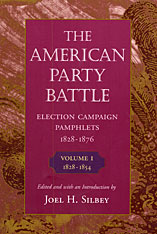
The nineteenth century was the heyday of furious contention between American political parties, and Joel Silbey has recaptured the drama and substance of those battles in a representative sampling of party pamphlets. Political parties mapped the landscape of electoral and ideological warfare, constructing images of themselves and of their adversaries that resonate and echo the basic characteristics of America’s then reigning sets of ideas. The nature of political controversy, as well as the substance of politics, is embedded in these party documents which both united and divided Americans. Unlike today’s party platforms, these pamphlets explicated real issues and gave insight into the society at large. Andrew Jackson’s Democrats, Millard Fillmore’s Whigs, Abraham Lincoln’s Republicans, and other, lesser-known parties are represented here. The pamphlets demonstrate how, for this fifty-year period, political parties were surrogates for American demands and values. Broad in scope, widely circulated, catalysts for heated debate over the decades, these pamphlets are important documents in the history of American politics.
In an excellent Introduction, Silbey teases out and elucidates the themes each party stressed and took as its own in its fight for the soul of the nation.
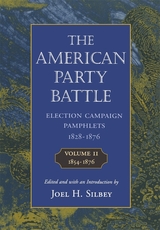
The nineteenth century was the heyday of furious contention between American political parties, and Joel Silbey has recaptured the drama and substance of those battles in a representative sampling of party pamphlets. Political parties mapped the landscape of electoral and ideological warfare, constructing images of themselves and of their adversaries that resonate and echo the basic characteristics of America’s then reigning sets of ideas. The nature of political controversy, as well as the substance of politics, is embedded in these party documents which both united and divided Americans. Unlike today’s party platforms, these pamphlets explicated real issues and gave insight into the society at large. Andrew Jackson’s Democrats, Millard Fillmore’s Whigs, Abraham Lincoln’s Republicans, and other, lesser-known parties are represented here. The pamphlets demonstrate how, for this fifty-year period, political parties were surrogates for American demands and values. Broad in scope, widely circulated, catalysts for heated debate over the decades, these pamphlets are important documents in the history of American politics.
In an excellent Introduction, Silbey teases out and elucidates the themes each party stressed and took as its own in its fight for the soul of the nation.
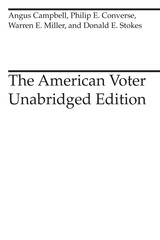
READERS
Browse our collection.
PUBLISHERS
See BiblioVault's publisher services.
STUDENT SERVICES
Files for college accessibility offices.
UChicago Accessibility Resources
home | accessibility | search | about | contact us
BiblioVault ® 2001 - 2024
The University of Chicago Press






